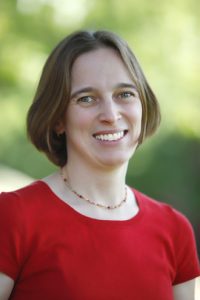Wendy Cadge is associate professor of sociology at Brandeis University. Her work focuses on religion in the contemporary United States with an emphasis in how such relates to healthcare, immigration and sexuality. Cadge is the author of two books: Heartwood: The First Generation of Theravada Buddhism in America (2005) and Paging God: Religion in the Halls of Medicine (2012).
Book Basics
Health-care is a near universal value in America with average per person spending climbing over $8,000. While the percentage of Americans who are religiously non-affiliated has risen significantly in recent years, the vast majority of Americans are religious with nearly 75% of the population identifying with a Christian tradition (49.5% Protestant or non-denominational and 25.1% Catholic according to the 2008 American Religious Identification Survey). In light of these overlapping realities, academic interest in the relationship between religion and health has increased in recent years across many disciplines.
Cadge moves beyond the most common research involving patient outcomes to explore “how religion and spirituality are actually present in the day-to-day workings of health-care organizations” (p.6). Her research includes an exploration of seventeen highly ranked academic hospitals that considers how religion and spirituality are addressed in these settings. Additionally, she spent a year learning more about the chaplaincy department of one hospital. Given the complexity of legal and other issues involved in seeking patient access, she focused on the experiences through the eyes of staff, especially chaplains. While the chaplaincy programs (a traditional name no longer in use at all of the facilities she visited) and the staff (a group that often includes both students and volunteers in addition to professional chaplains) that comprise them remains the most visible conduits of religion and spirituality their limited number ensures that a great deal of religious and spiritual experience happens outside of the presence of a chaplain. Through exchanges with physicians, nurses, chaplains and other medical staff; as a result of her own personal observations; and through a detailed analysis of both, Cadge provides a look into a previously unexplored world finding that religion and spirituality are alive and very active in large secular hospitals.
While professional chaplains and those charged with providing religious and spiritual care to those in health-care settings are most likely to be attracted to Paging God, it is an insightful and important read for all who care about either healthcare or religion/spirituality.
So What?
Chaplains are an important component of this story, but despite the attempts at standardizing requirements for such workers the actual practices of chaplaincy departments vary widely leading Cadge to divide these departments into three distinct types: professional, transitional and traditional. The role of chaplains varies between settings, but all are involved in religious matters and, increasingly, also understood as having roles in spiritual matters. While standards exist for “board certification” (a related masters degree, four units of Clinical Pastoral Education, the endorsement of a religious organization, passing a committee review, and paying fees to at least one of the approved professional organizations), Cadge found that few of the hospitals she visited made board certification a requirement.
- Explain what you think the role of chaplains in secular hospitals is today, then compare that to what you believe to be the ideal role for chaplains.
- What has your own experience been of religion and/or spirituality within the health-care arena? How does your own local congregation empower participants to more fully integrate these two worlds?
Wendy Cadge. Paging God: Religion in the Halls of Medicine (University of Chicago Press, 2013). ISBN: 9780226922119.
